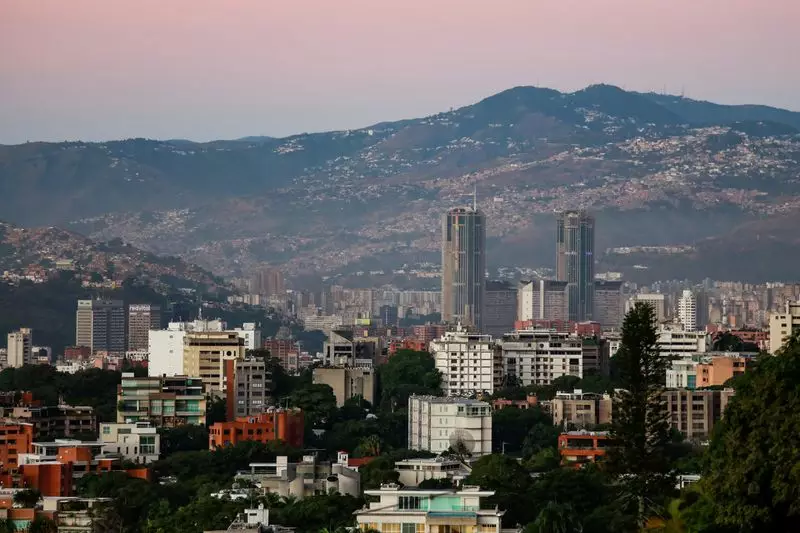Venezuela finds itself at a brutal crossroads as the U.S. ramps up its sanctions pressure against the regime of President Nicolás Maduro. Following a contentious election, the Biden administration imposed strict measures on key Venezuelan officials, further intensifying an economic war that has already devastated the nation’s economy and exacerbated its social crisis. This article examines the implications and significance of the recent sanctions, the contested electoral process, and the broader international response to Venezuela’s political turmoil.
On the day of Nicolás Maduro’s inauguration for a dubious third term, the U.S. government implemented sanctions against eight Venezuelan officials and raised the reward for information leading to his arrest from $15 million to $25 million. This decision reflects a continuation of the Biden administration’s punitive approach stemming from the July 2022 elections, which are widely disputed among both the ruling administration and opposition factions. Not surprisingly, these sanctions include the new head of Venezuela’s state oil company, PDVSA, Hector Obregon, along with other high-ranking officials in the transportation and security sectors.
This announcement followed similar sanctions unveiled by the United Kingdom and the European Union, designed to target 15 Venezuelan officials, encompassing members of the National Electoral Council and various security apparatuses. Canada also joined in with its own set of sanctions, demonstrating a united front from Western nations attempting to hold Maduro accountable for his authoritarian governance and allegations of electoral fraud.
In a statement that encapsulates the U.S. government’s stance, Bradley Smith, Acting Under Secretary of the Treasury, emphasized the commitment of the U.S. to stand in solidarity with the Venezuelan populace. He condemned Maduro’s continued repression while expressing support for a genuine democratic process. This rhetoric resonates with many who advocate for democratic norms and seek a shift in power dynamics that have long oppressed Venezuelans.
However, Maduro and his administration have vehemently rejected these sanctions as illegitimate. They argue that such punitive measures constitute an “economic war,” aiming to dismantle the Venezuelan state and economy. In a defiant inauguration speech, Maduro dismissed the U.S. sanctions as acts of ‘revenge,’ insisting that they do not deter the nation’s resilience.
The Venezuelan presidential election’s aftermath starkly illustrates the depth of the political divide in the country. According to Caracas’s electoral authority and the Supreme Court, Maduro secured victory. However, the details of the vote remain obscure, casting further doubt on the legitimacy of their claims. The opposition, backed by several foreign governments, insists that Edmundo Gonzalez, the self-proclaimed president-elect, won decisively.
Ahead of the inauguration, Maduro’s government aggressively targeted opposition figures, threatening to arrest Gonzalez should he return from exile, alongside detaining vocal opponents. Meanwhile, the international community has scrutinized the electoral process, with observers widely acknowledging that the vote was characterized by significant irregularities.
The shifting power dynamics in Venezuela inevitably intertwines with international geopolitics. For over a decade, Maduro has maintained power despite significant pressures from the U.S. and its allies, largely owing to the enduring support from military forces as well as nations like China, Russia, and Iran. This complex web of alliances showcases how entrenched Maduro’s regime has become, complicating efforts for external interventions aimed at effecting change.
President Biden’s recent engagement with Edmundo Gonzalez underscores the U.S. commitment to supporting the opposition. However, it raises questions about how his successor, Donald Trump, will approach the situation given his prior focus on a maximum pressure campaign during his last term. The question remains whether Trump will adopt an aggressive strategy against Maduro, especially considering domestic issues like immigration, which could impact his policy formulation.
Amid this backdrop of political strife, the situation in Venezuela poses not just a humanitarian crisis but ongoing complications for U.S.-Latin American relations. The potential for mass deportation of undocumented migrants back to Venezuela could necessitate some level of interaction with the Maduro regime, albeit reluctantly. As opposition leader Maria Corina Machado faces the threat of detention, the international community must remain vigilant and responsive to escalating tensions that could precipitate broader instability in the region.
The consequences of sanctions, contested elections, and global political maneuvering continue to underscore the precarious situation in Venezuela. As the country grapples with its identity and future, only time will tell how these prevailing currents unfold, and how the voices of the Venezuelan people, yearning for change, will resonate amidst the chaos.

